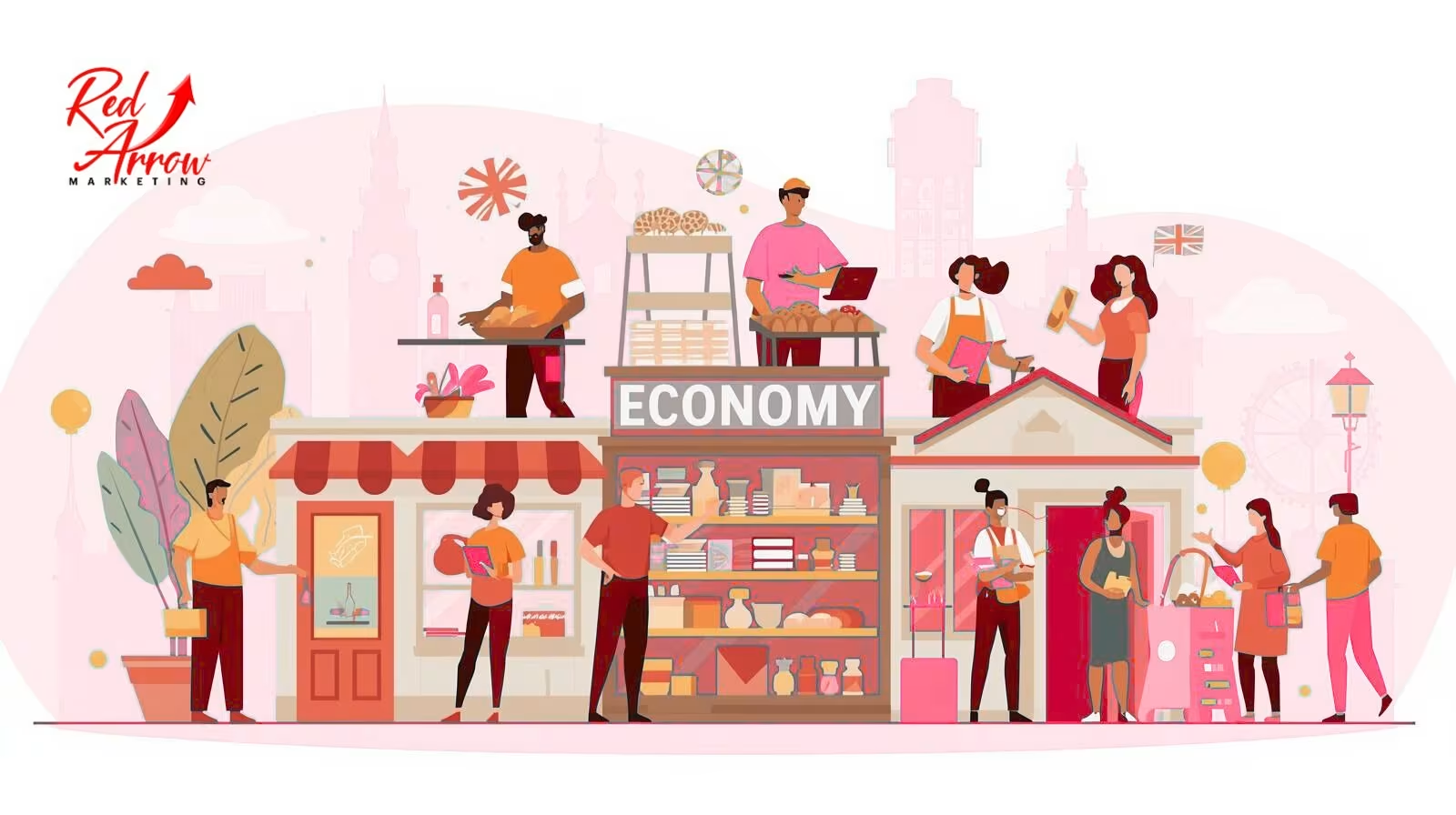In today’s fast-paced, over-saturated markets, and low concentration spans digital marketing plays a powerful role in shaping consumer behaviour. The journey from product discovery through to purchase decision-making entails relying heavily on product reviews, online interactions, and personalised promotions before the commitment is made. For business owners it is essential to understand these shifts for staying competitive – it’s not optional anymore.
Online Research Before Purchase Decisions
Modern consumers rarely make a purchase decision without first conducting thorough online research. According to recent studies, more than 80% of shoppers research online before buying, even if they plan to complete the purchase in-store. This process often involves reading reviews, comparing product features, and analysing brand credibility.
This shift means your digital presence is now the “first shop window” for your business. A well-functioning website, strong SEO strategy, optimised product pages, clear service descriptions, and informative blog content not only build authority but also ensure your brand shows up in search results before your competitors. Without these elements, businesses risk being invisible during the most critical stage of the buying journey.
Digital Word-of-Mouth: Reviews & User-Generated Content
Word-of-mouth marketing has gone digital, and it’s one of the most powerful drivers of consumer behaviour. Online reviews on platforms like Google, Trustpilot, and Yelp, as well as user-generated content (UGC) on Instagram, TikTok, YouTube and Facebook, act as modern-day recommendations. And the best part – these are only a few clicks away on the consumer’s device. Opting in for a strong digital marketing strategy means your potential customers find you online right when they are looking for your product or service.
Shoppers trust other people’s experiences more than brand promises. A single positive review can sway an uncertain buyer, while negative feedback can deter dozens of potential customers. That’s why managing your online reputation is crucial. Encouraging satisfied customers to leave reviews, sharing user-generated content, and engaging authentically with your audience can establish trust faster than any advertisement.
Digital word-of-mouth is essentially free advertising, but it requires consistent engagement and proactive reputation management to harness its full potential. So don’t forget to engage back with your audience.
Increasing Customer Loyalty
Digital marketing doesn’t stop once a customer makes their first purchase—it’s about building long-term relationships. Tools such as email marketing, loyalty programs, retargeting campaigns, and personalised offers allow businesses to remain connected to their audience. Try A/B testing, and always conduct analysis on campaigns to see what works best for your target audience.
A happy customer is not only more likely to buy again, but also more likely to recommend your brand to others. Increasing Customer Lifetime Value (CLV) is often more profitable than acquiring new customers, and digital marketing makes this possible by nurturing relationships at scale.
Businesses that ignore retention strategies often find themselves stuck in an expensive cycle of constantly chasing new leads, while those who invest in loyalty-focused marketing reap the rewards of consistent revenue and stronger brand advocacy.
The Low Patience Levels of Today’s Consumers
Today’s consumers, especially Gen Z, have grown up in an instant-gratification culture shaped by smartphones, apps, and on-demand services. As a result, patience levels are at an all-time low. A slow-loading website, a delayed response to a social media message, or a clunky checkout process can drive potential customers straight into the arms of a competitor.
For businesses, this means optimising every digital touchpoint for speed, efficiency, and convenience. From mobile-first website design to quick-response customer service chatbots, consumers expect smooth experiences. Meeting these expectations not only prevents lost sales but also positions your business as modern, professional, and customer-focused. Moreover, optimising digital features encourages Google and other search engines to rank you higher and rise above your competitors.
Impulse Buying Fuelled by Digital Marketing
Impulse buying is one of the most fascinating ways digital marketing influences consumer behaviour. Social media platforms like Instagram, TikTok, and Pinterest blur the line between inspiration and purchase, creating a seamless “see it, want it, buy it” culture. Creating the right visuals that are not only eye-pleasing, but also align with your brand, will help businesses build recognition and make your product more desirable.
Flash sales, countdown timers, limited-stock warnings, and personalised retargeting ads further fuel this behaviour. Even customers who didn’t initially intend to purchase are often persuaded by compelling digital prompts. Businesses that strategically use urgency, exclusivity, and strong visual content are able to generate sales on the spot, significantly boosting conversion rates. Additionally, subscription schemes have proven to be a great tool for repeat regular purchasing – a fantastic way to increase loyalty without extra fingertip action for your consumer.
Personalised Shopping Experience
In today’s digital economy, consumers expect more than generic advertising – they demand personalisation. This means targeted offers, relevant recommendations, and tailored shopping experiences that feel designed just for them.
Thanks to tools like AI-powered product recommendations such as Recombee, customer segmentation, and behavioural targeting, businesses can deliver personalised discounts, curated email campaigns, and dynamic website content that resonate with individual shoppers.
When executed well, personalisation not only drives higher conversions but also strengthens brand loyalty. A customer who feels “understood” by a brand is far more likely to return. On the other hand, businesses that fail to personalise risk being ignored altogether.
A Great Example of How Wild Has Changed Consumer Behaviour With Clever Digital Marketing Strategy
A great example of how digital marketing influences consumer behaviour is the success of Wild, the natural deodorant and toiletry company. Wild has positioned itself as more than just a personal care brand – it has reshaped how people think about deodorants altogether. Through clever online education, they highlight the downsides of conventional products that contain aluminium, parabens, or come in single-use plastic packaging, while presenting themselves as the healthier and more sustainable alternative. This strategy appeals directly to consumers who increasingly conduct online research before making a purchase, and who want to align their buying decisions with their values.
Wild also relies heavily on social proofing. Remember digital word-of-mouth? User-generated content on TikTok, Instagram, and YouTube, as well as influencer partnerships, create social proof that reassures new buyers. Seeing real customers share authentic reviews and unboxing videos makes natural deodorants feel less of a risk and more of a trend worth joining. To build loyalty, Wild introduced a refill subscription model that keeps customers coming back while making the eco-friendly choice simple and convenient.
The brand understands modern consumer impatience as well, offering a seamless ecommerce experience with fast delivery and easy refill subscriptions that remove inconvenience from the buying journey. They also drive impulse buying by using the power of social media hype. Viral TikTok clips showcasing colourful cases, seasonal scents, and limited-edition designs create urgency and exclusivity, pushing customers to act quickly before they miss out.
Finally, Wild personalises the experience by offering customisable deodorant cases and targeted promotions, such as discounts on first refills, which make every purchase feel tailored to the individual. In doing so, they have turned natural deodorants from a niche option into an aspirational lifestyle choice. Wild’s success demonstrates how digital marketing – when used to educate, build trust, nurture loyalty, and create urgency – can reshape consumer behaviour and turn an everyday product into a must-have brand.
Benefits of Digital Marketing for Businesses
For organisations, the advantages of digital marketing extend far beyond individual sales. The ability to connect, influence, and retain customers online provides opportunities that traditional advertising could never match.
Some key benefits include:
- Increased visibility – Be present where customers search, research, and shop.
- Stronger credibility – Build trust with online reviews, social proof, and transparent branding.
- Higher ROI – Optimised campaigns reduce wasted spend and maximise conversions.
- Scalability – Digital marketing grows with your business, adapting to changing demands.
- Customer retention – Nurture relationships with personalised, loyalty-focused campaigns.
Without a digital marketing strategy, businesses risk being invisible to the modern consumer, losing relevance, and leaving revenue opportunities on the table.
Final Thoughts: Why Your Business Can’t Ignore Digital Marketing
Digital marketing doesn’t just influence consumer behaviour – it defines it. From research-driven shopping and digital word-of-mouth to impulse buying and personalisation, consumer expectations are being shaped daily by the digital world.
At Red Arrow Marketing, we specialise in creating data-driven, high-impact strategies that not only capture consumer attention but also convert it into long-term growth. If you want your business to influence customers instead of chasing them, the time to act is NOW!
 Contact Red Arrow Marketing today and start shaping consumer behaviour in your favour.
Contact Red Arrow Marketing today and start shaping consumer behaviour in your favour.




